Indiana is blessed with a diverse selection of fish species, including largemouth bass (the state fish), bluegill, musky, northern pike, brook trout, brown trout, and rainbow trout. With rivers being one of Indiana's major landforms, it's no wonder there's an abundance of fly fishing opportunities in the Hoosier state.
Some of the best places to fly fish in Indiana include:
- Flatrock
- Iroquois River
- Lake Michigan
- Oakdale Dam
- Pigeon River
- Saint Joseph River, South Bend, and more.

Indiana offers anglers diverse fishing experiences, from small creek fishing to large river fishing and everything in between. If you're looking for a truly unique fly fishing experience, head to one of Indiana's many rivers and streams. This article will cover all 14 top spots to fly fish in Indiana.
Best Freshwater Fly Fishing locations in Indiana
Freshwater fly fishing is a popular activity in Indiana, and for a good reason. The state is home to various fish species, including largemouth bass, bluegill, musky, northern pike, brook trout, brown trout, and rainbow trout.

1. Big Blue River
Indiana's Big Blue River is an 83.8-mile (134.9 km) long tributary of the Driftwood River in the east-central portion of the state. It is part of the Mississippi's watershed via the Driftwood, White, Wabash, and Ohio rivers. Largemouth bass, Smallmouth bass, and Channel catfish are among the most popular species caught here.
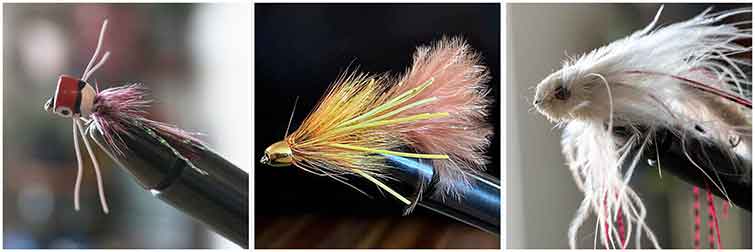
Recommended Fly Patterns for the Blue River, Indiana:
- Bass Poppers - Size 4-10
- Autumn Splendor - Size 4
- Trophy Dungeon - White & Red - Size 8
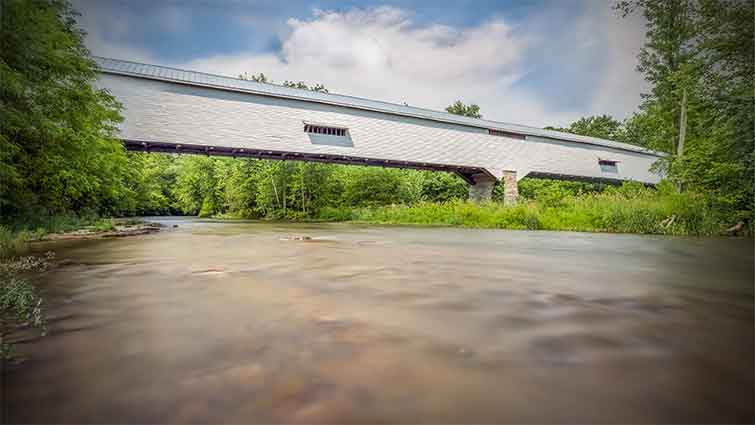
2. Flatrock
Flatrock is an unincorporated community in Washington Township, Shelby County, Indiana, near the Flat Rock River, located just south of Columbus. The Flatrock River rises in northeastern Henry County and flows southwestward through Rush, Decatur, Shelby, and Bartholomew counties before emptying into the White River near St. Paul.
The main Flatrock River access point is on 252 highway, and the most recommended take-out is located at the US 31 bridge near Columbus. Fishermen can catch a variety of fish here, including gar, bream/bluegill, carp, blue catfish, brown trout, rock bass, smallmouth bass, largemouth bass, white bass, and catfish.
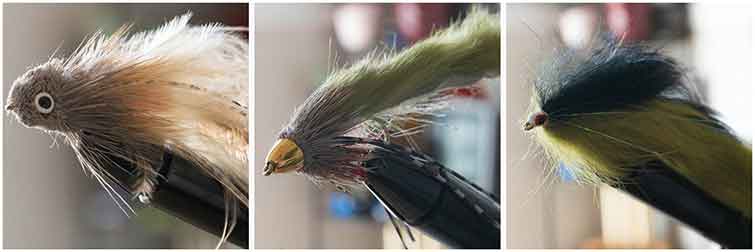
Recommended Fly Patterns for the Flatrock River, Indiana:

3. Iroquois River
The Iroquois River is a minor tributary of the Kankakee River in northwest Indiana and northeastern Illinois. It was named for the Iroquois people, who lived along its banks. It is part of the Mississippi River's watershed via the Kankakee and Illinois rivers.
The Iroquois River is a popular canoeing, kayaking, and fishing spot. Common fish species include largemouth bass, catfish, sunfish, Crappie, and Carp.

Recommended Fly Patterns for the Iroquois River, Indiana:
- Double Bunny Black and Olive - Size 6
- Muddler Minnow - Size 4
- Clouser Crawdad - Size 6

4. Lake Michigan
Lake Michigan is one of the five Great Lakes of North America and the only one located entirely within the United States. The other four Great Lakes are shared by the US and Canada.
It is the second-largest of the Great Lakes by volume and the third-largest by surface area, after Lake Superior and Lake Huron. To the east, its basin is joined to that of Lake Huron via the narrow Mackinac Straits, giving it the same surface height as its easterly counterpart.
Fishermen can find a variety of fish here, including:
- Panfish
- Pike
- Largemouth bass
- Smallmouth bass
- Walleye
- Salmon, and
- Trout

Recommended Fly Patterns for Lake Michigan, Indiana:

5. Oakdale Dam
The Oakdale Dam is a hydroelectric dam on the East Fork White River in Lawrence County, Indiana. It is operated by Duke Energy and provides power for the city of Bedford and surrounding areas.
Located just 6.1 miles from Monticello, in Carroll County, Sandy Beach, this dam is home to a variety of fish, including largemouth & smallmouth bass, bream/bluegill, blue catfish, white bass, walleye, and drum here.

Recommended Fly Patterns for the Oakdale Dam, Indiana:
- Trophy Dungeon - White-Red - Size 8
- Clouser Minnows - Size 0/1
- Matuka Sculpin Olive - Size 4

6. Pigeon River
The Pigeon River Fish and Wildlife Area is a 12,134-acre protected area dedicated to providing hunting and fishing opportunities. The region contains 529 acres of lakes and 17 miles (27 km) along the Pigeon River. It's on Indiana State Road 3 in Lagrange County, Indiana, near Mongo. The Pigeon offers anglers a small and shallow river valley, measuring less than one-half mile in width.
The river drains approximately 350 square miles and more than fifty lakes and hugs the moraine face for much of its length, preventing tributaries from the north from flowing into it. Pigeon River offers good fishing for largemouth bass, bluegill, and channel catfish.

Recommended Fly Patterns for the Pigeon River, Indiana:

7. Saint Joseph River, South Bend
The St. Joseph River, or St. Joe, in South Bend, Indiana, is a river that merely passes through the state. It originates near Hillsdale, Michigan, travels through half of that state, dips into Indiana, and returns to Michigan to finish its 210-mile journey to Lake Michigan.
In Indiana, the river runs a span of 42 miles; but that doesn't mean the state's fishermen haven't taken advantage of the opportunities it provides. There are four dams on the river in our state alone.
The St. Joe is one of the greatest steelhead streams in the United States. Steelhead begin their annual spawning run in March. Many 8-12 pound fish can be hooked daily during peak spawning time, which runs from mid-March to mid-April. The St. Joe has the best summer run of any river in the Great Lakes region.

Recommended Fly Patterns for the Saint Joseph River, Indiana:

8. Sugar Creek
Sugar Creek is a stream in Indiana. It starts on a farm field two miles south of Kempton, Indiana, and goes west-southwest for about 93 miles (150 km) before merging with the Wabash River 5 miles north of Montezuma. Crawfordsville is the largest town and access point on the waterway.
Sugar Creek, a popular tourist and canoeist destination in Indiana, passes through two state parks: Shades and Turkey Run. The creek and its many tributaries are known for their beautiful canyons and tiny waterfalls on the rocky ground. In the creek, you may fish for bass, bluegill, crappie, carp, and rainbow trout.

Recommended Fly Patterns for Sugar Creek, Indiana:
- Muddy buddy - Black - Size 6
- Bass Poppers - Size 4-10
- Slump Buster with Cone - Black - Size 6

9. Tippecanoe River, Delphi
In northern Indiana, the Tippecanoe River is a meandering 182-mile-long (293 km) river in the Central Corn Belt Plains ecosystem. It begins at Crooked Lake in Noble County and flows into the Wabash River near Battle Ground, some 12 miles (19 km) northeast of Lafayette.
The Tippecanoe River is fed by 88 natural lakes, with a drainage area of 1,250,000 acres, which includes 14 counties. It supports more species and overall species diversity than most streams in the upper Midwest. The river is home to over 50 species of fish, including smallmouth and largemouth bass, spotted Bass, rock Bass, catfish, and perch.

Recommended Fly Patterns for the Tippecanoe River, Indiana:
- Flashback Pheasant Tail - Size 16 - 22
- Copper John Beadhead - Copper - Size 12 - 22
- Zebra Midge Black - Size 20

10. Wabash River
The Wabash River is a 503-mile (810 km) long river that drains the majority of Indiana in the United States. It begins at the headwaters in Ohio, near the Indiana border, then flows southwest through northern Indiana before turning south near the Illinois border, where it forms part of the Indiana-Illinois border before flowing into the Ohio River.
Angling success can be found anywhere along the river, but certain locations known for their fishing include:
- Near Darwin, Illinois
- Vincennes, Indiana
- From Mt. Carmel, Illinois to New Harmony, Indiana
- The access at New Harmony, Indiana; and
- The stretch of river below Maunie, Illinois.

Recommended Fly Patterns for the Wabash River, Indiana:
- Clouser Minnows - Size 0/1
- Clouser Crawdad - Size 6
- Bass Poppers - Size 4-10

11. Whitewater River, Brookville
Brookville, Indiana, is home to the Whitewater River. The river is a tributary of the Great Miami River, approximately 101 miles long, and drains parts of east-central Indiana and southwest Ohio. It flows generally northwest through hilly terrain.
The East and West forks of this over 100-mile-long river meet in the Town of Brookville. The headwaters are just south of Brookville Lake in Rush County, Indiana.
The Whitewater is a warm water stream that is home to smallmouth bass, largemouth bass, channel catfish, panfish, and suckers. The river also has good populations of sunfish, carp, and channel & flathead catfish.

Recommended Fly Patterns for the White River, Indiana:
- Zebra Midge Curved Red - Tungsten - Barbless - Size 18
- Half Chernobyl Brown/Orange - Size 10
- Trophy Dungeon - Natural - Size 8

12. White River, Indianapolis
The Whitewater River is a 101-mile-long (163 km) southern flowing tributary of the Great Miami River in Indiana and Ohio. The confluence of two streams forms its origin: the West Fork and East Fork.
The White River, which begins in Indiana and ends in Illinois at the state line, runs another 50 miles (80 kilometers) east before emptying into the Wabash River near Mount Carmel, Illinois, where the Grand Rapids Dam and Hotel once stood. The entire basin of the White River covers 11,305 square miles.

Recommended Fly Patterns for the White River, Indianapolis Indiana:
- Clouser Minnows Multiple Color's - Size 4
- Slump Buster with Cone - Size 6
- Clouser Crawdad - Size 6

13. Wildcat Creek
In north-central Indiana, the Wildcat Creek is a tributary of the Wabash River. The stream has a length of 84 miles (135 km) and drains an area of 804.2 square miles (2,083 km2). There are three main forks to the Wildcat: North, South, and Middle.
They flow through varied topography and land uses, including cropland, pasture, forest, and developed areas in an east-west direction. The major tributaries of the Wildcat are Little Wildcat Creek and Kokomo Creek.
Fishing the Wildcat is good for various species, including:
- Largemouth and smallmouth bass
- Channel catfish
- Flathead catfish
- Bluegill
- Sunfish
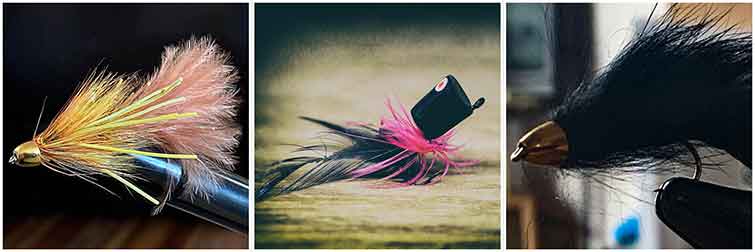
Recommended Fly Patterns for the Wildcat Creek, Indiana:
- Autumn Splendor - Size 4
- Bass Poppers - Size 4-10
- Slump Buster with Cone - Black - Size 6

14. Yellow River, Knox
The Yellow River is a 62.3-mile (100.3 km) tributary of the Kankakee River in northern Indiana's Central Corn Belt Plains region, flowing through the United States and into Illinois via the Kankakee and Illinois rivers. It drains 427 square miles (1,110 km2) of area in northern Indiana, part of the Mississippi River watershed.
For more information on regulations and requirements, check out the Indiana Department of Natural Resources website. With so many options, you're sure to find the perfect place to cast your line and enjoy a day of fishing in the Hoosier state.
Recommended Fly Patterns for the Yellow River, Indiana:
- Clouser Minnows - Size 0/1
- Lefty’s Deceiver - Size 0/2
- Mojo Minnow Perch Fly - Size 0/4
What Gear do I need to Fly Fish in Indiana?
In Indiana, some standard fly fishing gear is a must - A good pair of waders, a protective hat, a rain jacket, a variety of flies and rig sizes depending on the species you're targeting, and other necessities such as sunblock and bug spray.
Indiana fly fishing generally requires a 5 or 6-weight rod for small streams and a 7 or 8-weight for larger rivers. A 9-foot rod is recommended, but an 8-foot rod will do in a pinch. You'll also need a reel, line, tippet, and flies.
Gloves, wool socks, and a warm hat should be part of your wintertime gear list. Adding gloves, wool socks, and a protective hat to your plans will help you stay warm in the Indiana winter conditions. Keep the socks to a minimum; a bit of wiggle room inside your boots actually increases heat through increased circulation.
Additional Facts about Fly Fishing in Indiana
Is there fly fishing in Indiana?
There is excellent fly fishing in Indiana. The state has a wide variety of fish available all year, with the exception of stream trout, which have certain limitations. Make sure you're aware of all rules and restrictions before heading out on your trip because there are some restrictions on stream trout. From January 1 through April 14, for example, all trout streams are catch and release.
Are there trout streams in Indiana?
In Indiana, there are several rivers and streams with healthy trout populations. In addition to Lake Michigan, Brookville Lake, and Cecil M Harden Lake, Indiana's trout fishing in freshwater lakes is limited to smaller lakes stocked with fish by the Indiana Division of Fish & Wildlife.

Is there Trout Fishing in Indiana?
Trout fishing in Indiana is excellent, with the state offering a wide variety of fish all year. There are, however, certain limitations on stream trout. From January 1 through April 14, for example, all trout streams are catch and release.
Are there wild trout in Indiana?
The common brown trout is native to the state of Indiana and can be found in northern sections. The Great Lakes region is home to both brook and lake trout, which are indigenous to the state. Rainbow and brown trout have been introduced to Indiana from other locations around the world.
Fly fishing in Indiana is a great way to enjoy the outdoors and connect with nature. With so many options available, you're sure to find the perfect place to cast your line and enjoy a day of fishing in the Hoosier state. Be sure to check out all the regulations and requirements before heading out on your trip, and gear up with all the necessary equipment to have a successful day of fly fishing.

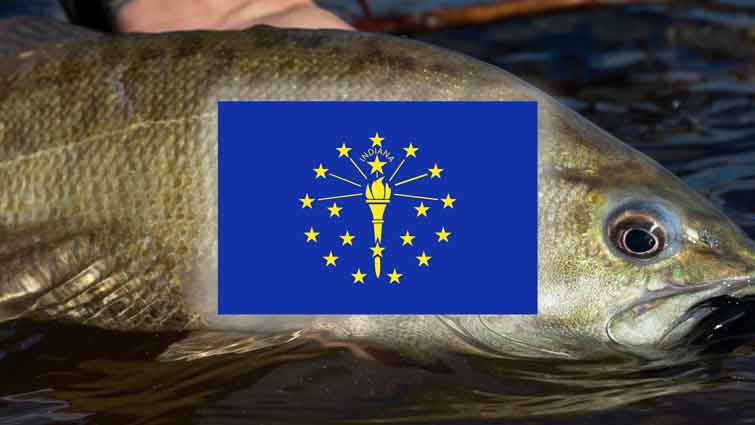


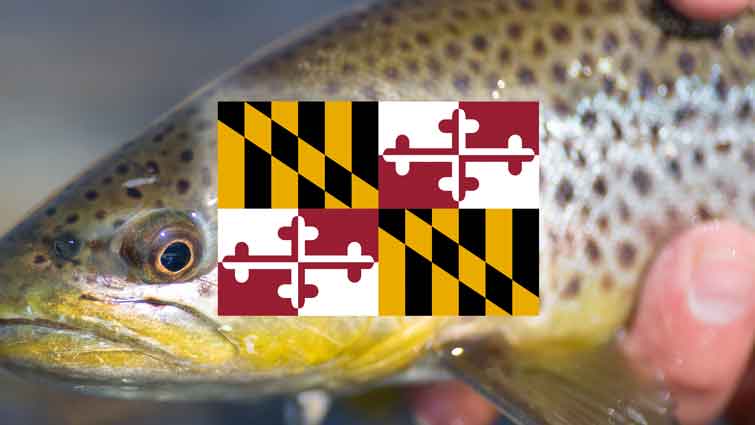
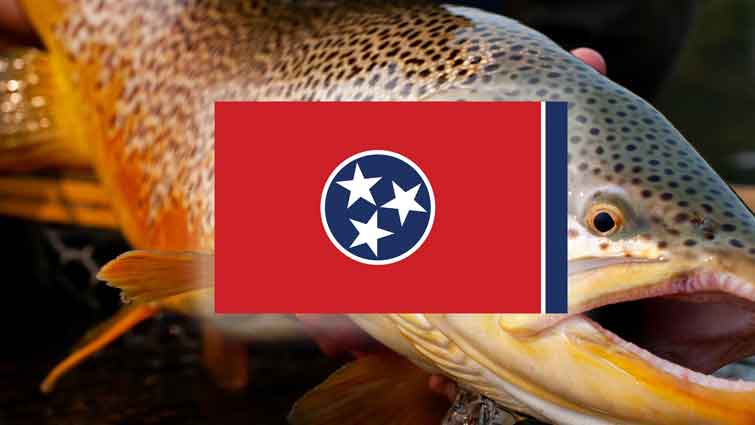
2 comments
MIKE PENNEKAMP
Thank you for your publication on streams and rivers to fish in Indiana! I would love to fish these areas because I need someplace to fish that is convenient and easy to fish. I love stream fishing for smallmouth and bluegills because they are fun to catch and I like all the action I can get for a day of fishing! Thank you again for your help.
Thank you for your publication on streams and rivers to fish in Indiana! I would love to fish these areas because I need someplace to fish that is convenient and easy to fish. I love stream fishing for smallmouth and bluegills because they are fun to catch and I like all the action I can get for a day of fishing! Thank you again for your help.
英文小麥
Thank you so much for this! NOBODY has been willing to write a fly fishing guide for Illinois, Indiana, or even Nebraska for that matter. Misleading many to thinking there are simply no fish to be caught in any of these states. :(
Thank you so much for this! NOBODY has been willing to write a fly fishing guide for Illinois, Indiana, or even Nebraska for that matter. Misleading many to thinking there are simply no fish to be caught in any of these states. :(